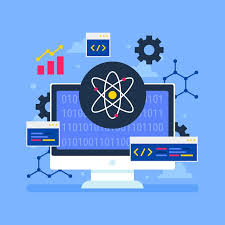The Future of Quantum Computing: Revolutionizing Technology and Beyond
Explore the exciting world of quantum computing, a groundbreaking technology set to revolutionize industries by solving complex problems beyond the capabilities of classical computers. Learn about its principles, current advancements, and future potential.

Quantum computing represents a paradigm shift in computing technology, harnessing the principles of quantum mechanics to perform computations at unprecedented speeds. Unlike classical computers that use bits, quantum computers use qubits, allowing them to process vast amounts of data simultaneously. This blog post delves into the fundamentals of quantum computing, its current state of development, and the transformative potential it holds for industries such as cryptography, pharmaceuticals, and artificial intelligence. Discover how quantum computing is poised to solve some of the most challenging problems and shape the future of technology.
Key Concepts in Quantum Computing
-
Qubits: The basic unit of quantum information, qubits can represent both 0 and 1 simultaneously, thanks to the principle of superposition. This allows quantum computers to process a vast amount of information at once.
-
Superposition: This principle allows qubits to be in multiple states simultaneously, exponentially increasing the computational power of quantum computers compared to classical ones.
-
Entanglement: A phenomenon where qubits become interconnected and the state of one qubit instantly influences the state of another, regardless of distance. This property is crucial for the power of quantum computing.
-
Quantum Gates: Operations that manipulate qubits, similar to logic gates in classical computing but capable of creating complex quantum states.
Current Advancements in Quantum Computing
Quantum computing has made significant strides in recent years, with numerous breakthroughs and practical implementations:
-
Quantum Supremacy: In 2019, Google claimed to achieve quantum supremacy with their quantum processor, Sycamore, solving a specific problem faster than the world’s fastest supercomputer.
-
Quantum Cryptography: Quantum computing is revolutionizing cryptography by developing virtually unbreakable encryption methods and secure communication channels.
-
Quantum Simulation: Researchers are using quantum computers to simulate molecular structures and chemical reactions, leading to advancements in materials science and drug discovery.
-
Quantum Algorithms: Algorithms like Shor's algorithm for factoring large numbers and Grover's algorithm for searching unsorted databases highlight the potential speedup quantum computing can provide over classical methods.
The Future Potential of Quantum Computing
The future of quantum computing holds immense promise, with potential applications across various industries:
-
Cryptography: Quantum computers can break traditional encryption methods but also pave the way for quantum cryptography, providing ultra-secure data transmission.
-
Drug Discovery and Pharmaceuticals: Quantum simulations can model complex molecular interactions, accelerating the discovery of new drugs and treatments.
-
Artificial Intelligence: Quantum computing can enhance machine learning algorithms, enabling faster data processing and improved AI capabilities.
-
Optimization Problems: Industries like logistics, finance, and manufacturing can benefit from quantum algorithms that solve complex optimization problems more efficiently.
-
Climate Modeling: Quantum computers can analyze vast datasets and simulate climate models with higher accuracy, aiding in environmental research and policy-making.
Challenges and Considerations
Despite its potential, quantum computing faces several challenges:
-
Technical Challenges: Building and maintaining stable qubits is difficult due to decoherence and quantum noise, requiring advanced error correction techniques.
-
Scalability: Scaling up quantum computers to handle practical, real-world problems remains a significant hurdle.
-
Cost and Accessibility: The high cost and specialized nature of quantum computing hardware limit its accessibility, but ongoing research aims to make it more feasible.
-
Ethical and Security Concerns: The power of quantum computing poses ethical questions, particularly around security and the implications of breaking current encryption standards.





